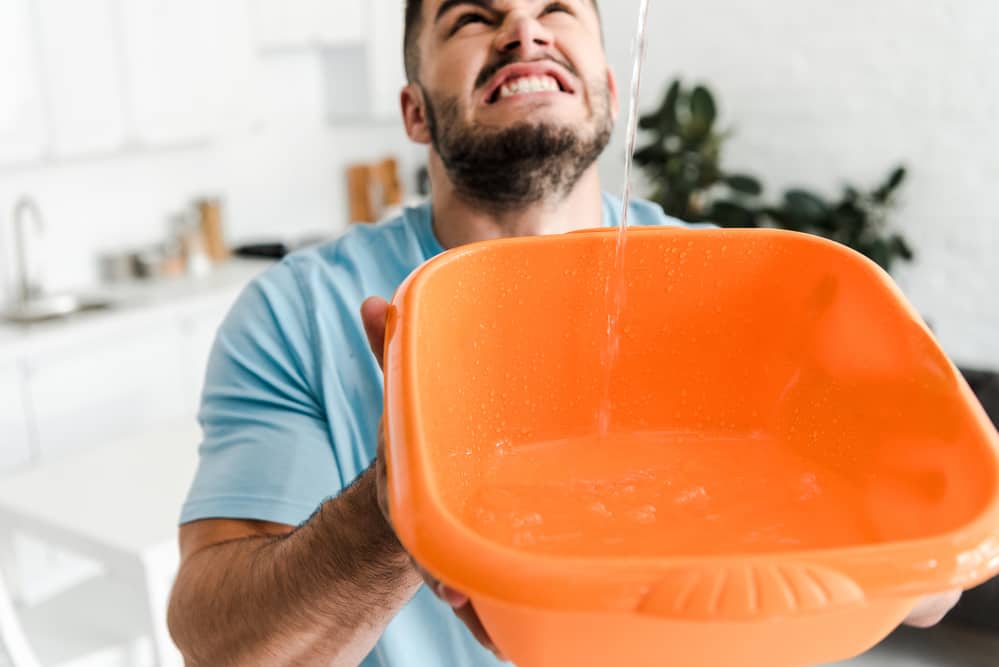You are probably aware of how essential water is. But, regardless of its incredible use, it can still wreak havoc in your home and cause serious issues. When this happens, it can be quite an unsettling and devastating experience.
Water damage can be any homeowner’s worst nightmare. Supposedly, water should be controlled within your drain pipes, sinks, supply pipes, and basins. It should never ceaselessly run in your basement, floors, or walls. However, issues with your pipes, gutters, sump pump, or appliances may spell out water damage.
Fortunately, exorbitant repair fees, costly property damage, and several potential health risks associated with water damage can all be avoided. To do so, you’ll need to understand the various reasons why this occurs.
How Does Water Damage Homes?
Water damage is not usually caused by natural disasters like floods and hurricanes. “Big things start little,” as the proverb goes, and this is how your home is frequently wrecked. In fact, homes are often ruined by tiny leaks in pipes.
You know how damaging water damage can be if you’ve already been through it. Even a small and slow water spill, if left untreated, can degrade walls, cause mold, and eventually harm major structural parts.
Other causes of water damage include leaking appliances, broken pipes, flooded basements, sewer backups, or poor drainage. Being aware of these causes can help you stop the first drop of water leakage and assist you to address potential problems in advance to keep your home dry, clean, and safe.

Top 10 Ways to Prevent Water Damage
- Know where your water main is situated
The water main valve, according to plumbing professionals, maybe the most critical plumbing component in the house. The water main brings water into your home, which is subsequently transferred to various pipelines.
When a water line is broken, it will interrupt the flow of the potable water in your home which may result in costly repairs and potential damages that could have been avoided if you just know where the water main shutoff is located.
- Identify and fix water leaks
Once you identify leakage in your home, act quickly to inspect. Your home may acquire mildew, mold, rot, and structural damage if you choose to ignore this problem or defer important repairs. However, if you correct a leak as soon as it occurs, there may be no long-term consequences.
- Inspect your appliances regularly
The source of water damage is frequently overlooked. Who would have guessed that your home’s appliances could cause water damage? If left unattended for too long, broken refrigerator hoses, overloaded washing machines, and leaking faucets are all indicators of disaster.
Maintaining your appliances can be a time-consuming process, but it’s worthwhile when you realize that it could save you money on future repairs.
- Ensure good drainage
Make sure that drains are not leaking by inspecting them under the sink. Sinks are designed to collect water and channel it through waste pipes to the sewage main. All components of the drainage system must work flawlessly. Otherwise, wastewater will leak into your sink cabinets, between floors, or inside of walls, causing malodorous leakage.
- Clean the gutters and downspouts routinely
To put it simply, gutters and downspouts are an outside system of pipes that transport water off of your roof and away from your foundation, similar to the pipes in your house.
Over time, dirt and debris may fall into your gutters which results in clogging. Clogged gutters can lead to a buildup of water that seeps into the siding through cracks and holes. If leaking continues, the water will accumulate over time, which can damage walls and floors.
- Check your water pressure
Check to see whether the water pressure is too high. If so, adjust the pressure to a reasonable level. Otherwise, high-pressure pipes and hoses may burst.
A water pressure gauge can be obtained at a local hardware store to determine the water pressure. Connect the gauge to an exterior faucet and turn it hard. The water pressure in your home will be displayed after that.
- Monitor your water bill
One way to determine if there is a water leakage is by taking a look at your water bill. A sudden spike in your monthly payment may indicate that your pipes are clogged or broken. It is vital to check out first before phoning a professional in this situation.
- Maintain the sump pump
Usually found in the basement, a sump pump comes to life in times of disasters like storms and flooding. It is actually considered as the last line of defense for your home in the event of increasing groundwater or indoor flooding.
A sump pump works by removing water from places where it doesn’t belong and transporting it to a more suitable location. Therefore, it is essential to check if the sump pump’s electrical outlet is operational and that the pump turns on and transfers water. Ideally, it should be checked at least once a year and multiple times during stormy seasons.
- Install water detectors
A water detector is a small electronic gadget with a sensor that detects wetness and produces an alarm. Its key advantage is that it can detect slow leaks and low moisture levels that go undiscovered most of the time. To avoid mold growth or major damage, place it near sump pumps, toilets, water heaters, and washing machines.
- Consider the temperature
Weather extremes can have an impact on your plumbing system. Knowing the climate in your area could help you avoid flooding, broken pipes, clogged drains, and water damage.
Cooler regions have a greater risk for water damage because pipes freeze more often. Keep an eye on your thermostat to prevent pipes from freezing.
When to Call a Professional?
Even if you maintain, inspect, and monitor the various components of your plumbing system and follow the steps to prevent water damage, some circumstances are inevitable.
When caught up in this situation, the first step is to assess the extent of the damage. If you are having trouble figuring out what’s wrong, it’s time to seek assistance from a professional.
Why Ask Pacific Restoration for Assistance?
At Pacific Restoration, professionals go beyond and above assisting you in cleaning and restoring your home. We’ll also make sure you don’t run into the same issue again. Our professional technicians will repair clogged drains, broken pipes, as well as offer suggestions to guarantee that your home does not suffer from water damage in the future.

